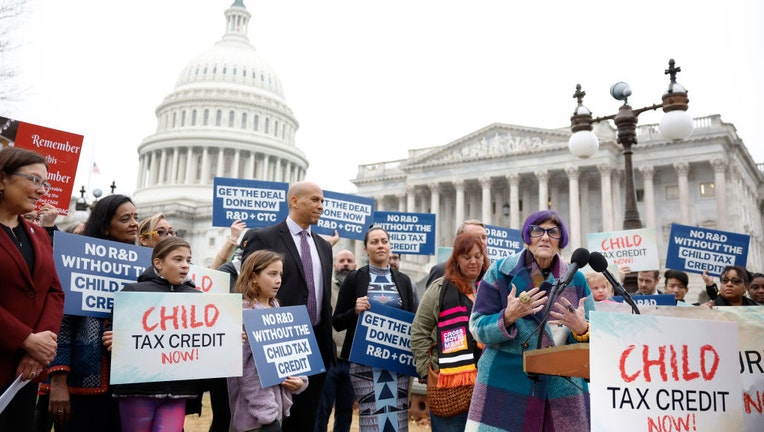House approves Child Tax Credit expansion; here's what that means for you

FILE-Representative Rosa DeLauro (D-CT-03) speaks during a press briefing with U.S. House and Senate officials, and impacted families on expanding the Child Tax Credit in Washington, DC. (Photo by Tasos Katopodis/Getty Images for Economic Security Pr
The House approved a $79 billion bipartisan tax package expanding the Child Tax Credit and tax credits for businesses.
Under the proposed bill, the Child Tax Credit would raise the amount of the credit available as a tax refund, increasing it to $1,800 for 2023 tax returns, $1,900 for the following year and $2,000 for 2025 tax returns. According to the Associated Press, the bill also adjusts the topline credit amount to grow at the rate of inflation.
Separately, the bill keeps a threshold of a household having $2,500 in income to be eligible for refundable child tax credit payments.
RELATED: Child tax credit expansion part of bipartisan $78B deal proposed in Congress
Citing the Tax Policy Center, the AP notes that homes benefitting from the changes to the child tax credit would see an average tax cut of $680 in the first year.
This credit can also be claimed by foster parents and other relatives like grandparents or stepparents, if the child meets eligibility requirements by the IRS.
Children with a social security number and who are under the age of 17 by the end of the calendar year are eligible for the Child Tax Credit, the IRS notes on their website.
The Child Tax Credit also has income limits. Filers with adjusted gross incomes below $200,000 and joint filers with less than $400,000 can receive the full credit, per the IRS.
Additionally, businesses could deduct the cost of their US-based research and experimentation investments instead of over five years while having the ability to deduct 100% of their investment in machinery and equipment.
The bill would also boost a tax credit for the construction or rehabilitation of rental housing targeted to lower-income households, while making sure natural disaster victims don't get hit with a big tax bill for payments they received as restitution for their losses.
The Associated Press contributed to this report. This story was reported from Washington, D.C.

